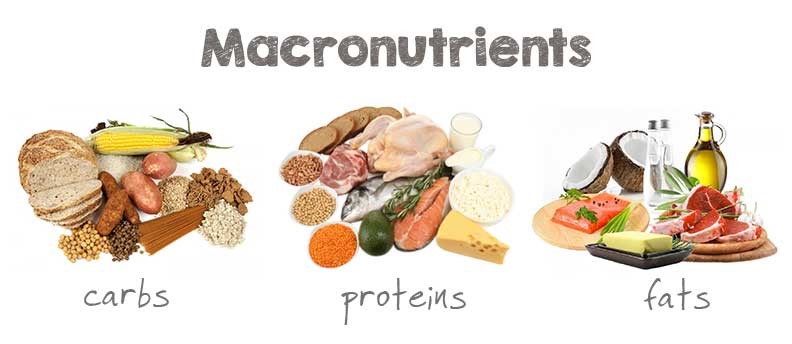What Macro and Micronutrients Are?
The impact of diet on health is indisputable. Quality food is essential for nourishing the body and protecting against inflammatory processes and oxidative stress. Insufficient amount of nutrients in your diet can lead to various consequences, such as low energy levels or more serious conditions, as well as the chronicity of existing conditions. For these reasons, it is important to understand what types of nutrients are present in foods and their importance.
Macro and micronutrients and their role
The nutrients your body needs to perform vital functions are divided into 2 categories: macronutrients and micronutrients.
Macronutrients are those that the body needs in large quantities, namely: carbohydrates, proteins and fat. These 3 categories of nutrients supply the body with energy, or calories.
Micronutrients are those that the body needs in small amounts, namely vitamins and minerals.
Macronutrients provide us with energy, while micronutrients help the body stay healthy and digest macronutrients properly. Therefore, macro and micronutrients work in tandem to maintain the health of the whole body.
What is the role of macronutrients
Carbohydrates, protein and fat are the main nutritional providers in the diet. However, each of them has a well-defined role for the health of the body. Carbohydrates include sugars, starches and fiber found in fruits, grains / grains and vegetables, and are the most important source of energy in the diet because they are quickly broken down into glucose, muscle and brain fuel. While carbohydrates are found in healthy foods, such as vegetables, they can also be taken from unhealthy foods, such as processed sweets and pastries. For this reason, carbohydrates have a bad reputation, especially among people on a diet.
For this reason, it is important to distinguish between simple and complex carbohydrates. This difference lies in the chemical structure that affects the time in which sugar is absorbed by the body. Simple carbohydrates, or “bad” carbohydrates, release sugar faster, because they contain processed and refined sugar, which does not contain vitamins, minerals or fiber. Complex, or “good”, carbohydrates are processed more slowly by the body and are rich in nutrients.
Proteins are composed of amino acids that have hormonal and enzymatic action on the immune system. At the same time, proteins are an integral part of connective tissue, skin hair and muscle fibers. Unlike carbohydrates, proteins do not serve as a direct source of energy, but act as pillars of resistance for other structures in the body. The nutritional value of proteins is measured by the amount of essential amino acids they contain and which depends on the food source from which they come.
Proteins from animal sources, such as meat and fish, contain all the essential amino acids. Soy products, quinoa and amaranth seeds also contain all the essential amino acids. Plant proteins usually contain most of the essential amino acids, so for vegetarians, it is important to combine plant proteins with those of soy / quinoa / amaranth to benefit from the full range of essential amino acids.
The difference between saturated and unsaturated fats is important because the body only needs the latter. Unsaturated fats help regulate metabolism, maintain the elasticity of cell membranes, improve blood circulation and promote cell development and regeneration. Fats also play an important role in the assimilation of fat-soluble vitamins, namely vitamins A, D, E and K.
What is the role of micronutrients
Vitamins are micronutrients of organic origin and can depreciate on contact with certain elements, such as heat, air or acidic environment – so vitamins can be distorted when cooked or exposed to air, which makes them more difficult to assimilate from food.
Minerals, on the other hand, are inorganic and cannot depreciate in the same way as vitamins. This means that the body can absorb minerals from food sources more easily, even if they are cooked or exposed to air.
Vitamins and minerals have specific roles in supporting the body, and the best way to benefit from them is by maintaining a balanced and varied diet. Micronutrients support many essential processes in the body and have an antioxidant role, protecting against diseases and deficiencies.
Vitamins help assimilate protein and support cell multiplication. Vitamins also promote collagen production, support the integrity of blood vessel walls and the health of bones and teeth. Minerals support bone health and stabilize the protein obtained from food, promote the circulation of oxygen in the body and maintain the ability to smell and taste at an optimal level.

